What is a low pile carpet? And 3 big reasons why it's better than a high pile carpet
Why choose a low pile carpet, and what carpet pile is best for your home? Experts answer the most popular flooring questions

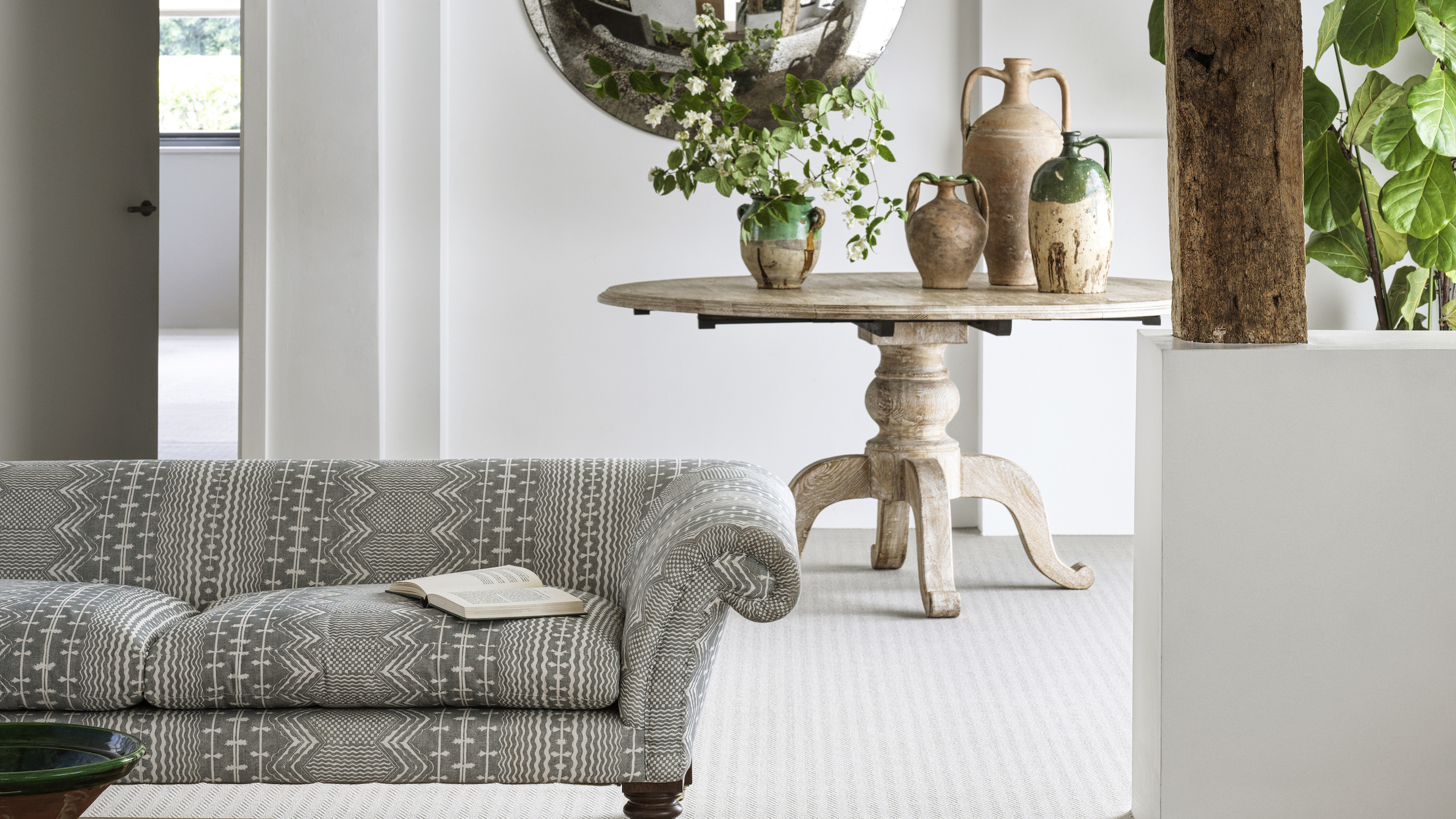
What is a low pile carpet? And why does fiber height matter? Actually, it's a vital consideration when you're choosing a carpet, not just because low pile carpet looks different – it has shorter, tighter loops that are flatter in appearance than those of a high pile carpet – but performs differently too. And when you are considering how to make an impact in a space, it is important to think about how your flooring and carpet ideas will look after enduring traffic over time.
When browsing bedroom or living room carpet ideas, it can feel natural to begin with the color or pattern first, but experts suggest the pile is equally as important – especially in terms of longevity.
Low pile carpets are the best choice for rooms that see a particularly large amount of foot traffic – whether that's in your entryway, living room, or along your stairwell. So, before you investigate the latest carpet trends, it's important to know that your low pile from your high pile, and be confident that your flooring will stand the test of time.
What is a low pile carpet? 3 benefits of this durable flooring
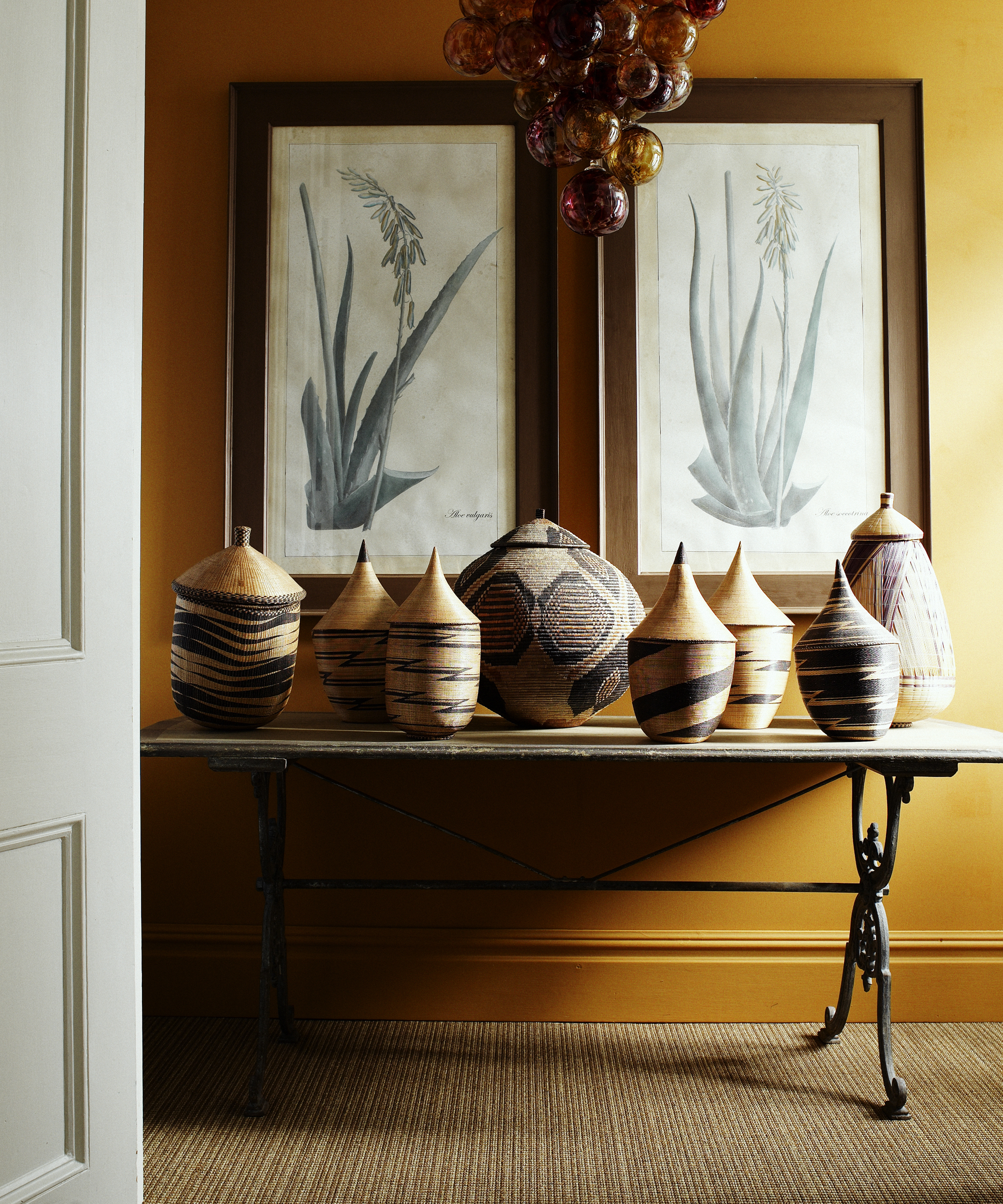
1. Low pile carpets are long-lasting
A low pile carpet is made from short fibers with a flat, dense aesthetic. These short fibers mean vacuuming is seamless (especially in regard to thicker flooring ideas such as shaggy rugs), meaning maintenance is easy.
The short fibers also blur foot traffic as they are less able to sink from constant use compared to higher pile alternatives. So, if you're looking for hallway carpet ideas that will continue to impress, the low pile style is understandably favored by experts. However, its benefits aren't limited to its longevity.
2. Low pile carpets are better for allergy sufferers
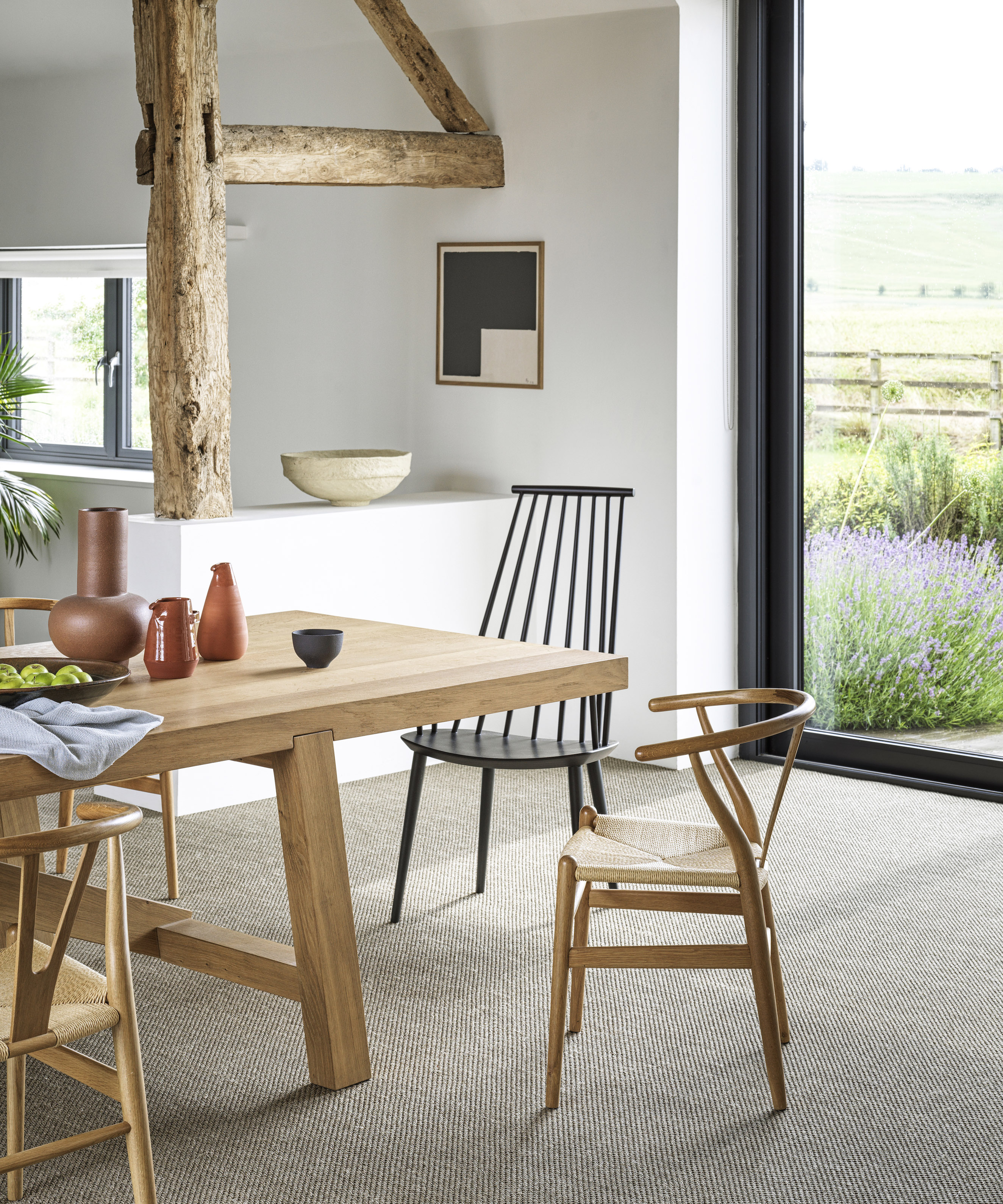
'If any member of your family has allergies or respiratory conditions, you should use low pile carpets to filter out allergens from the air,' says Laurice Constantine, the founder of Casadar.
This is because the low pile is notably easier to clean than high pile carpets, plus more dust mite-resistant than its alternatives, which is beneficial if you are prone to irritants and bad asthma attacks.
Design expertise in your inbox – from inspiring decorating ideas and beautiful celebrity homes to practical gardening advice and shopping round-ups.
Which low pile carpet materials to choose?
Wool is by far the best because it is both hypoallergenic and durable, trapping allergens, including pollen and dust in the pile. Looking for a lower budget option? Both nylon and polyester low pile carpets will be better for allergy sufferers than high pile, even in the same materials.
3. Low pile carpets keep your room cool
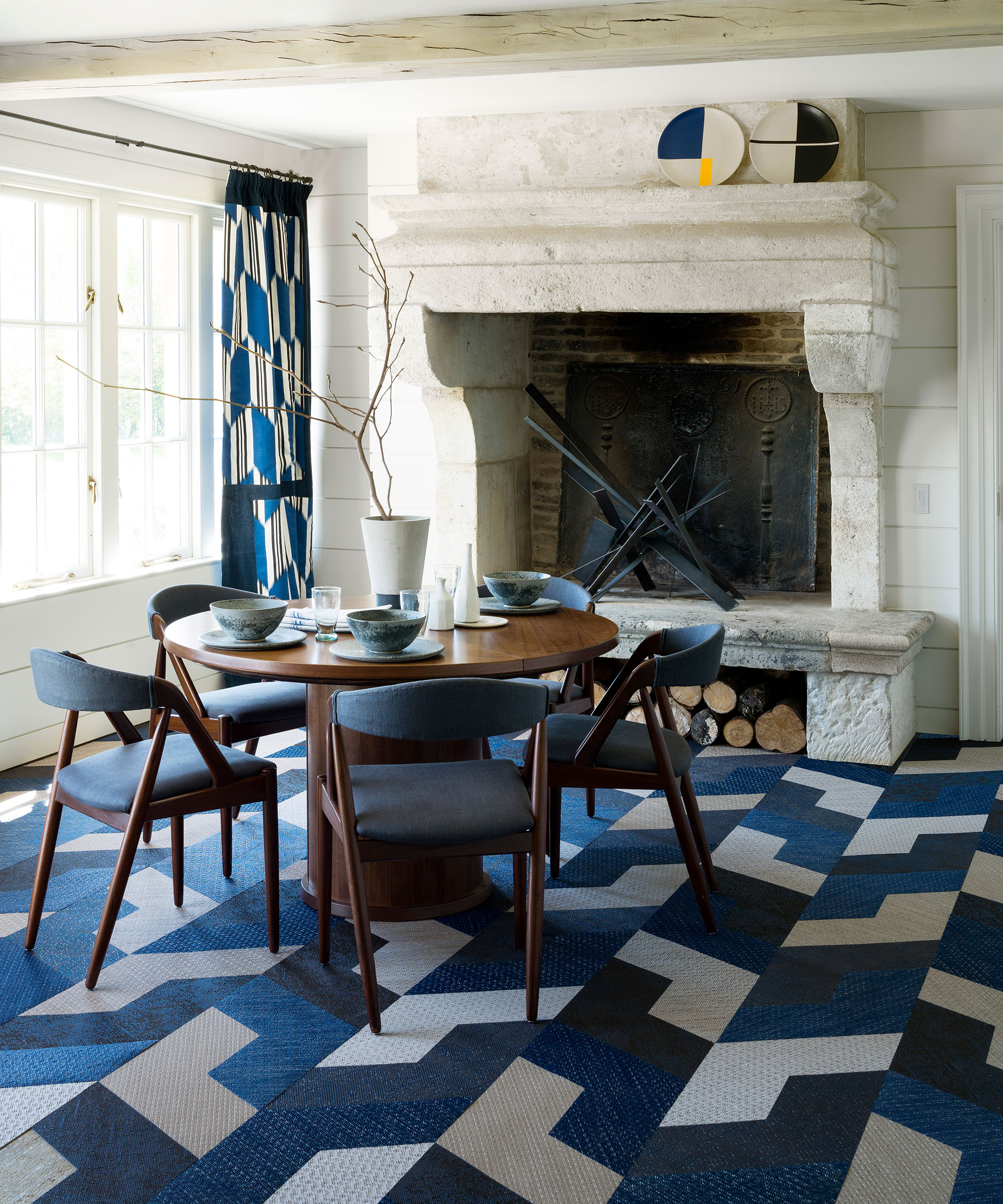
If you're looking at how to keep a home cool in a heatwave, then low pile carpets may be the solution you need.
'One of the best tips I give my clients when it comes to keeping living rooms cool is to replace their shaggy rugs [or carpets] with rugs that have a low pile or no pile at all,' suggests Zara O'Hare, an Interior Design Consultant at Land of Rugs.
While shaggy rugs and other thick-piled rugs may look good and offer comfort underfoot, they trap heat effectively.
'If sunlight is shining through your window and hot air is coming into your home, all this heat will be trapped by these thick rugs, and your room will remain hotter for longer,' the expert adds.
Therefore, while high pile carpets may be beneficial in the cooler months, it may be worth considering a low pile alternative if your home suffers in the heatwave.
What are the difference in carpet piles and weaves?
There are three main categories of woven carpet piles – Axminster, Wilton, and flatweave. Architectural Joining Professional Joe Ferguson from SkirtingsRusexplains that low piles (Axminister or Wilton) are usually less than 1/4in thick or shorter.
'Low piles like Axminister or Wilton are usually made with either natural or synthetic fibers,' he says. 'Both are woven type and fixed to their backing. Style-wise, twist carpets are more recognizable, but Saxony is much more preferred in residential settings,' he adds.
Finding the best one for your home depends on your personal needs and your property. If you are prone to allergens, or your space is significantly hotter in the summer, it may be worth investing in a low-pile weave.
However, if you're considering guest bedroom carpet ideas – or other rooms with less foot traffic, a thicker high pile option may be the best for you.
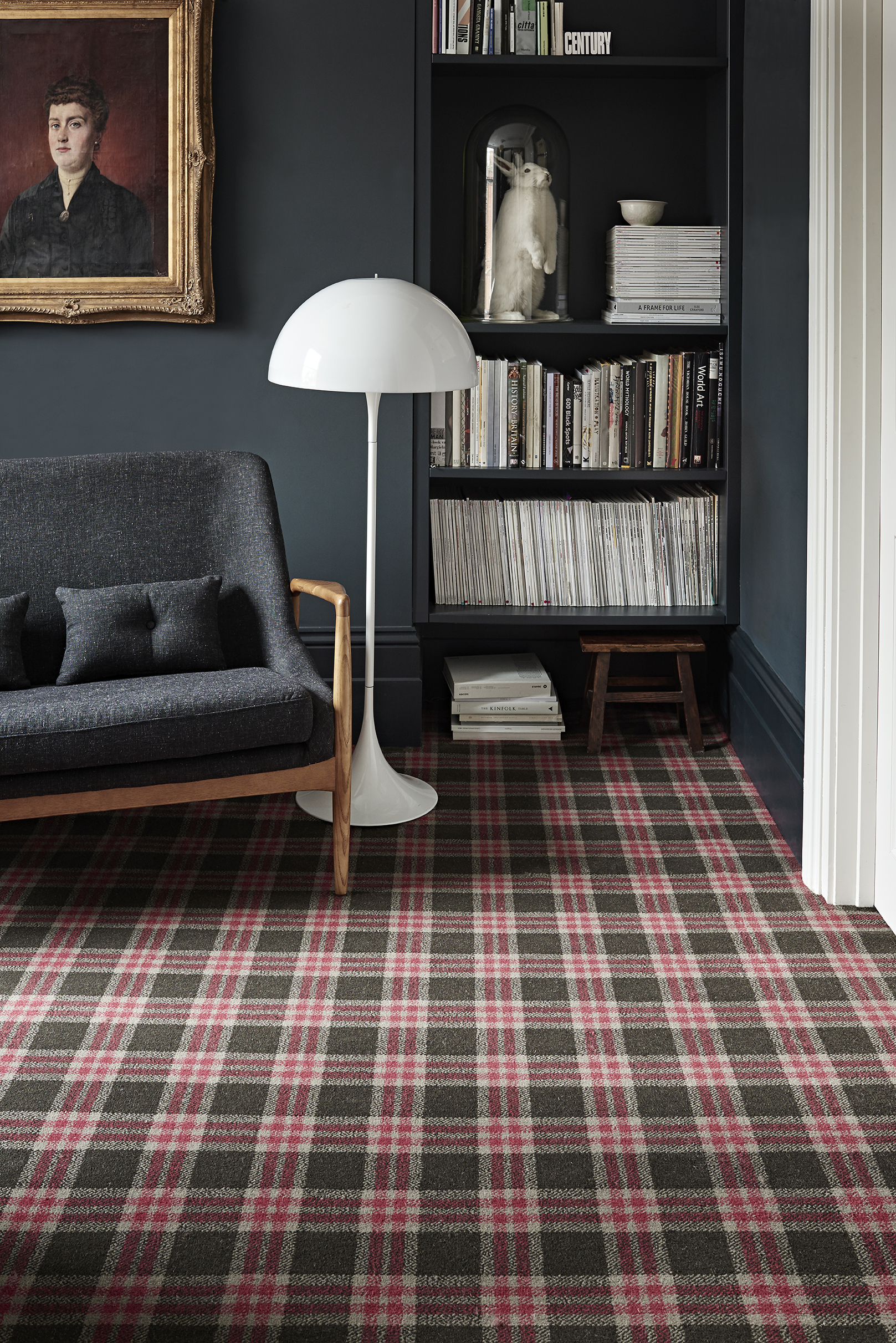
Do I have low or high pile carpet?
The answer depends on the thickness of your carpet. If your carpet is 1/4in or below, it is considered a low pile carpet. Joe suggests that many homes opt for denser 'Saxony' style carpets with thickness for added comfort, but as the experts suggest, there are many benefits to choosing a low pile carpet.

Megan is the Head of Celebrity Style News at Homes & Gardens, where she leads the celebrity/ news team. She has a history in interior design, travel, and news journalism, having lived and worked in New York, Paris, and, currently, London. Megan has bylines in Livingetc, The Telegraph, and IRK Magazine, and has interviewed the likes of Drew Barrymore, Ayesha Curry, Michelle Keegan, and Tan France, among others. She lives in a London apartment with her antique typewriter and an eclectic espresso cup collection, and dreams of a Kelly Wearstler-designed home.